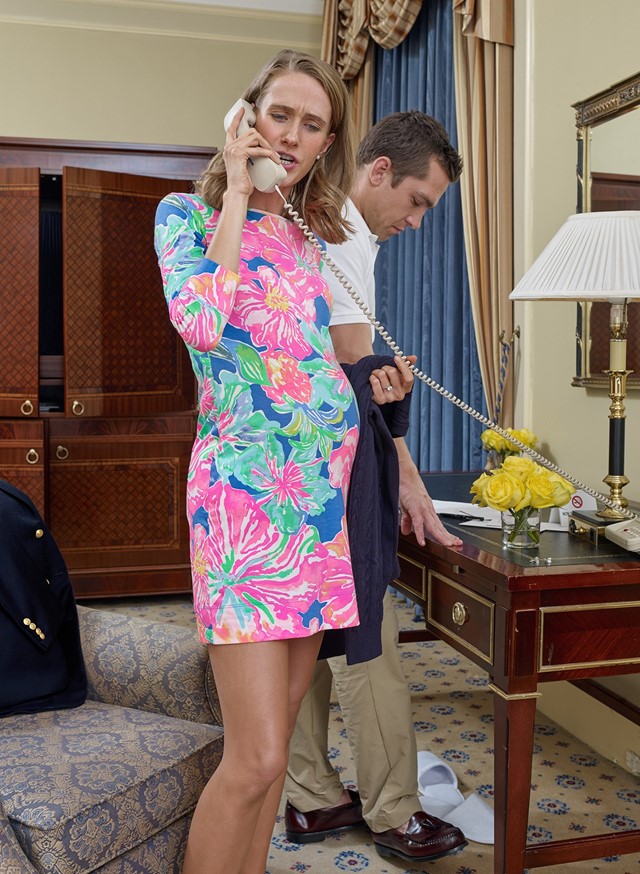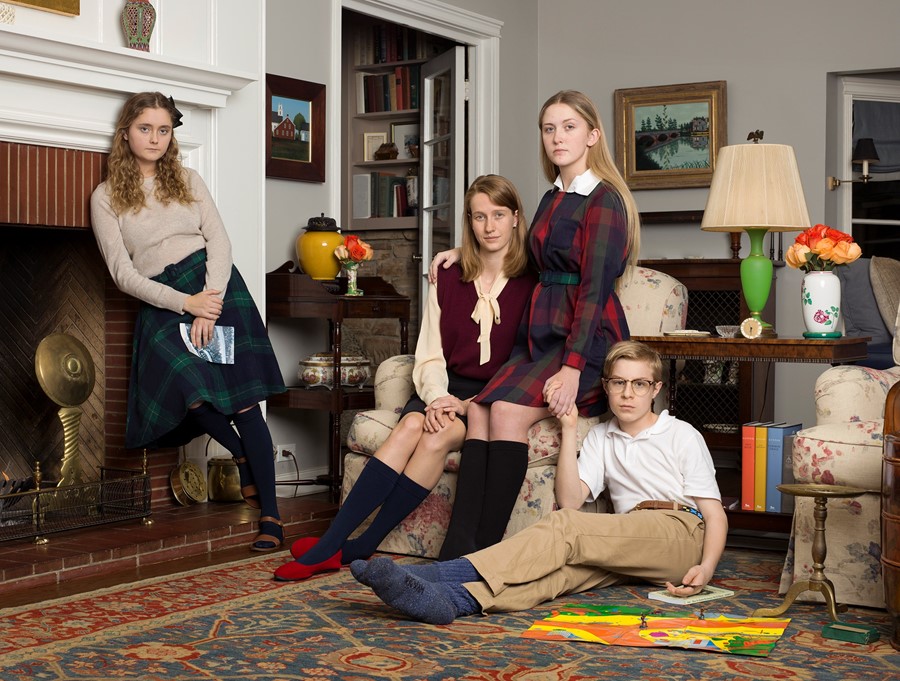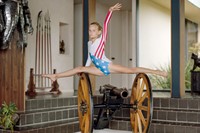Buck Ellison’s series Tender Option is a reimagining of American politician Betsy DeVos’ early life in 1970s America
Buck Ellison’s photographs look too perfect to be true: happy families with blond hair, gleaming teeth, and crisp white shirts. They look like the kind of stock images you see every day advertising the healthy stability that comes with vitamin supplements, spa retreats, and life insurance.
Every one of Ellison’s compelling pictures is carefully staged with props and actors. Behind each smile is a cold professionalism, each loving gesture honed for the camera. The photographer’s latest exhibition, Tender Option at London gallery The Sunday Painter, examines how ideas of normality and the “beautiful idea, perverted mythology” of the American Dream have become inextricably enmeshed with WASP (White, Anglo-Saxon, Protestant) aesthetics.
Born in San Francisco in 1987, this a culture that Ellison says he knew growing up and now wishes to critique from the inside. “It can never be said enough that as white people we benefit from racism every day,” he says. “It’s our job to speak out against that. My work attempts to do its part, examining the hidden mechanisms that perpetuate inequity within our formally democratic and egalitarian society.” The photographer, who has also lent his signature staged-reality aesthetic to recent Balenciaga campaigns, has been exploring and subverting WASP culture through images that recreate family portraits, shopping trips and Christmas cards.
Tender Option introduces new work that imagines the early family life of a real person: US Secretary of Education Betsy DeVos, who along with her siblings is the beneficiary of billions of dollars and incomprehensible tax arrangements. While DeVos now works for the Trump administration, her brother Erik Prince founded the American mercenary company Blackwater. It’s easy to see why Ellison regards this family as representing the epitome of WASP culture.
In Ellison’s photograph The Prince Children, Holland, Michigan (2019), DeVos is imagined as a child of the 1970s alongside her siblings. Ellison notes that a huge amount of research goes into his photographs, making sure each picture authentically resembles a scene from that era – Persian rugs, Chinese vases, and chintzy floral sofas feature – down to the specific books each child holds; the Psalms for the girls and a military manual for Prince.

Ellison’s keen sense of historical accuracy is matched by his artistic licence, and he draws much inspiration from Dutch Renaissance paintings. “It seems like those artists were negotiating some of the same questions that I have. They were trying to find a visual language that could keep pace with the new treasures flooding into the republic from the colonies.” His highly detailed photographs often offer little hints to these forebears: a pair of slippers in his portrait Dick and Betsy, The Ritz-Carlton, Dallas, Texas (2019) recalls the famous pair in Jan Van Eyck’s painting The Arnolfini Wedding, for example.
Beneath the refinement of Ellison’s work remains a sense of tension between this presumed respectability and violence. A picture of Prince sitting beneath a tree playing with a kitten while dressed in tactical military gear feels eerie; while another still life of a private school prospectus layered with business cards evokes a sense of the famous scene in American Psycho. Tender Option highlights the luxury and superficiality of the WASP culture, and how easily it can be subverted and parodied with just a few actors.
Tender Option by Buck Ellison is at The Sunday Painter until April 13, 2019.






